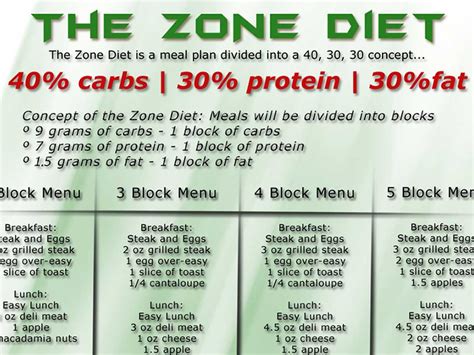Discover the definition, benefits, types of food, meal preparation, and who should follow a soft diet in this comprehensive guide.
Definition of soft diet
Contents
A soft diet is a type of diet that consists of foods that are soft in texture and easy to chew and swallow. It is often recommended for individuals who have difficulty chewing or swallowing, such as those with dental problems, jaw pain, or difficulty swallowing due to medical conditions. The goal of a soft diet is to provide nourishment while reducing the strain on the digestive system.
When following a soft diet, individuals are advised to consume foods that are easy to chew and swallow, such as cooked vegetables, fruit smoothies, tender meats, and soft grains. It is important to avoid foods that are hard, crunchy, or sticky, as these can be difficult to chew and may pose a choking hazard. Additionally, some individuals may need to avoid foods that are fibrous or stringy, as these can be difficult to swallow.
Overall, the primary aim of a soft diet is to provide individuals with a nutritious and easily digestible meal plan that is gentle on the digestive system. By following a soft diet, individuals can ensure that they are receiving the necessary nutrients while minimizing discomfort during eating.
It is important to note that a soft diet should be followed under the guidance of a healthcare professional, as individual dietary needs may vary. By working with a dietitian or healthcare provider, individuals can create a soft diet plan that meets their specific needs and dietary restrictions.
Benefits of soft diet
A soft diet can offer numerous benefits for individuals who have difficulty chewing or swallowing, as well as those recovering from certain medical procedures. One of the primary benefits of a soft diet is that it can help alleviate discomfort for individuals with dental issues or those who have undergone dental surgery. By consuming soft foods, they can avoid putting pressure on their teeth and gums, promoting faster healing and reducing the risk of complications. Additionally, a soft diet can be easier for individuals with digestive issues or conditions such as gastritis or gastroesophageal reflux disease (GERD) to tolerate, as it minimizes the strain on the digestive system.
In addition to physical health benefits, a soft diet can also have a positive impact on mental and emotional well-being. For individuals who have difficulty chewing or swallowing, consuming soft, easy-to-eat foods can reduce feelings of frustration and help them maintain a sense of independence and autonomy when it comes to their dietary choices. This can contribute to improved overall quality of life and a more positive outlook on their health and well-being.
Furthermore, a soft diet can provide a convenient and accessible option for individuals who may have challenges with meal preparation or cooking. With a variety of easily prepared and readily available soft foods, such as yogurt, mashed potatoes, and cooked vegetables, individuals can still enjoy a nutritious and balanced diet without the added stress or effort of preparing more complex meals. This can be especially helpful for caregivers or family members who are responsible for preparing meals for individuals with dietary restrictions or special needs.
It’s important to note that the benefits of a soft diet will vary for each individual, depending on their specific health conditions, dietary preferences, and medical recommendations. Consulting with a healthcare professional or a registered dietitian can help determine the most appropriate and beneficial dietary approach for each person’s unique needs and circumstances.
Types of food allowed
A soft diet typically consists of foods that are easy to chew and swallow. This includes cooked fruits and vegetables without skin or seeds, such as applesauce, mashed bananas, and well-cooked carrots. Soft dairy products like yogurt and cheese are also allowed, along with soft protein sources like scrambled eggs and tender meats. In addition, foods that are soft in texture and easy to digest, such as smooth nut butters and jelly, are permitted on a soft diet. It’s important to avoid anything hard or crunchy, as well as tough meats or raw fruits and vegetables.
Additionally, grains and starches that are easy to chew and swallow, such as oatmeal, soft bread, and pasta, are typically allowed on a soft diet. Foods that are easy on the digestive system, like well-cooked grains and soft desserts such as pudding or gelatin, are also included in this category. It’s crucial to ensure that all foods are prepared in a manner that makes them easy to chew and swallow, and to avoid anything that could cause discomfort or difficulty in the digestive process.
When planning meals for a soft diet, it’s essential to focus on foods that are easy to chew and swallow, while still providing adequate nutrition. This may involve incorporating a variety of cooked and soft foods into the diet, such as pureed soups, mashed potatoes, and well-cooked grains. By choosing soft and easy-to-digest options from different food groups, individuals can follow a soft diet while still maintaining a balanced and nutritious eating plan.
Ultimately, the main goal of a soft diet is to make eating more comfortable and manageable for individuals who may have difficulty chewing or swallowing. By focusing on soft foods that are easy to eat and digest, it’s possible to maintain a healthy and enjoyable diet while accommodating specific dietary needs or restrictions.
Preparing soft diet meals
When preparing soft diet meals, it is important to consider the specific dietary restrictions of the individual. A soft diet typically consists of foods that are easy to chew and swallow, making it ideal for individuals with dental issues or difficulty swallowing. The key is to focus on foods that are soft in texture and easy to digest, while still being nutritious and flavorful.
One great option for soft diet meals is to incorporate pureed foods. This can include pureed fruits and vegetables, as well as pureed meats and grains. These foods are easy to swallow and can be easily flavored with herbs and spices to add dimension to the meal.
In addition to pureed foods, incorporating soft cooked grains such as oatmeal, rice, and quinoa can provide essential nutrients while still meeting the requirements of a soft diet. These grains can be easily flavored and mixed with pureed fruits or vegetables to create a well-rounded meal.
Another important consideration when preparing soft diet meals is to focus on moist and soft preparation methods. This can include cooking foods with added moisture, such as using broth or sauces, and using slow cooking methods to ensure softness and tenderness.
Overall, preparing meals for a soft diet requires creativity and attention to detail. By focusing on pureed foods, soft grains, and moist preparation methods, it is possible to create flavorful and nourishing meals that are easy to chew and swallow.
Who should follow a soft diet
A soft diet is typically recommended for individuals who have difficulty chewing or swallowing, as well as those recovering from certain medical procedures or conditions. It may also be suitable for people with gastrointestinal issues, such as ulcers or strictures, that make it difficult to process certain foods. Additionally, individuals with dental problems or those who have recently undergone dental surgery may benefit from following a soft diet as it requires less chewing and is gentler on the teeth and gums.
Patients who have undergone certain medical procedures, such as oral or maxillofacial surgery, may be advised to follow a soft diet during their recovery period. This helps to minimize discomfort and promote healing by reducing the strain on the surgical site. Similarly, individuals who have recently had difficulty swallowing due to conditions such as stroke, head and neck cancer, or neurological disorders may be placed on a soft diet to help improve their ability to consume food safely and comfortably.
Furthermore, elderly individuals who may experience age-related changes in their ability to chew and swallow effectively may find a soft diet to be more manageable and less taxing on their digestive system. For those with certain medical conditions, such as Parkinson’s disease, Alzheimer’s disease, or other neurodegenerative disorders, a soft diet can help to maintain adequate nutritional intake while reducing the risk of aspiration or choking.
It’s important to note that the specific requirements for a soft diet may vary based on an individual’s underlying health condition, functional abilities, and nutritional needs. Therefore, it’s advisable to consult with a healthcare professional, such as a physician or registered dietitian, to determine whether a soft diet is appropriate and to receive tailored guidance on food selection and preparation.














